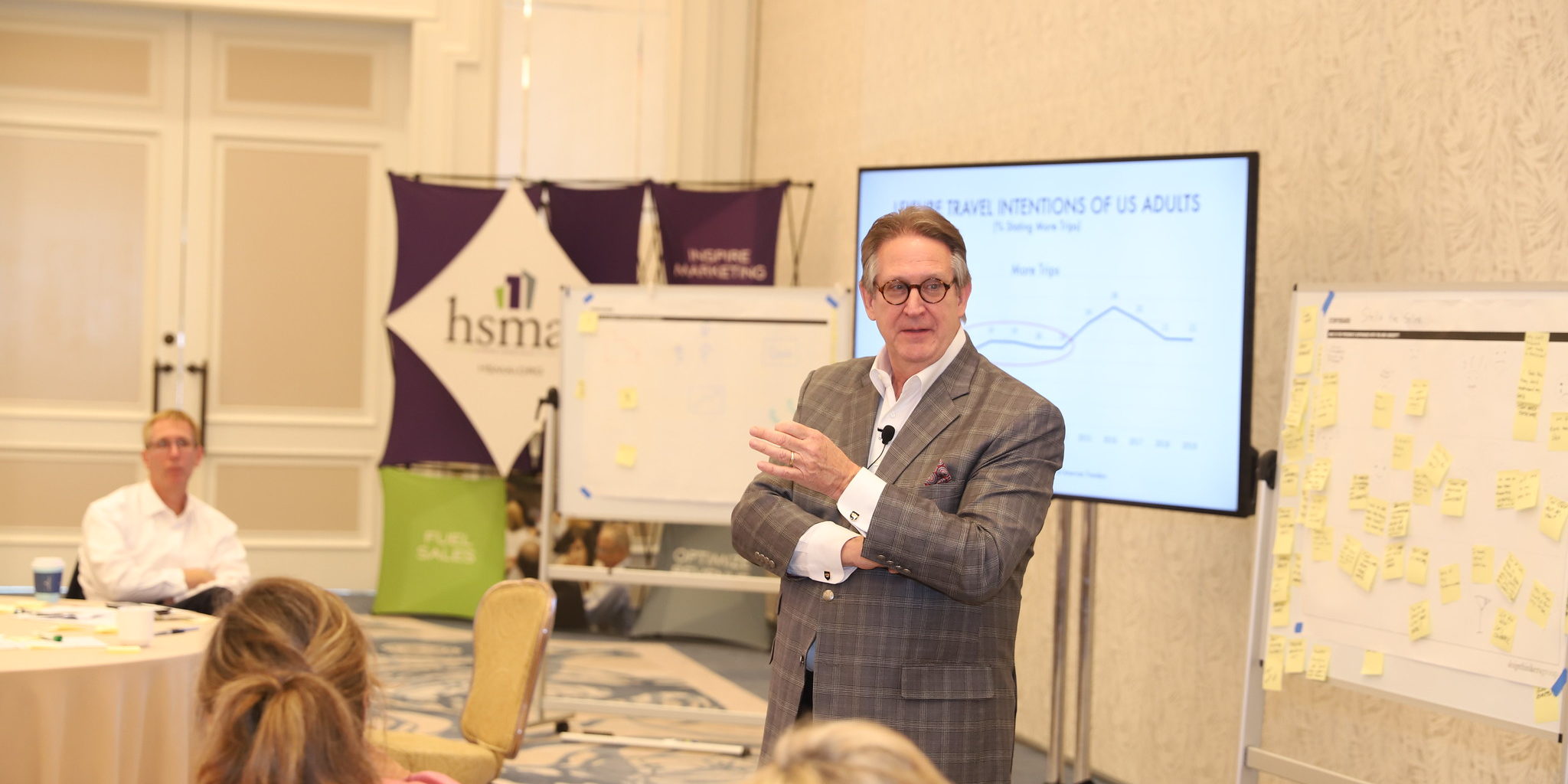By Christopher Durso, Vice President of Content Development, Hospitality Sales & Marketing Association International (HSMAI)
Finally, it’s almost here: 2020. The year the economy slows down, stops growing, and/or enters recession. Or none of these things. After several years of heated speculation, the only consensus seems to be that the economy is a moving target — and that while the uninterrupted growth of the last decade can’t last forever, no one can say for sure what will happen next.
At Fall Curate 2019, HSMAI’s Executive Insights Forum for Organizational Member companies, a panel of industry veterans presented an economic outlook that included thoughts on how to deal with whatever curveballs the economy might throw at hospitality sales, marketing, and revenue optimization professionals. Led by MMGY Global President Kate Briscoe, the panel included IHG’s Isaac Collazo, KSL Resorts’ Jeff Senior, and MMGY’s Peter Yesawich — who, like Curate attendees, think there will be some manner of economic slowdown next year. As part of their discussion, Collazo, Senior, and Yesawich offered suggestions for surviving and thriving, including these three strategies:
1. Don’t panic on pricing: “One of the key takeaways from the last time [the economy was disrupted] was that it had virtually no impact to lower your rates,” Senior said. “Part of the challenge is, the systems are scraping the rates and they’re looking at one another and they’re saying, ‘Oh, my gosh, he’s down, therefore I need to be.’ You need to take a step back and avoid the herd mentality. I’m not suggesting it’s that easy, but I’m suggesting that avoiding the herd mentality, not falling prey to the RMS’s scraping and telling you what to do, be actively engaged — that will mitigate a lot of that ADR erosion.”
Collazo added: “It goes back to watching demand. Say you have demand on the books. Why would you lower your rates at this point? Demand is elastic, but again, why would you just lower your rates?”
2. Anticipate multiple outcomes: “You should have scenarios set up,” Collazo said. “You should at least be thinking about it and have milestones to be tracking against it. Because if you’re only planning for one outcome, chances are you’re probably wrong. Why wouldn’t you plan for three or four outcomes and say, what are my milestones before I determine where to go and what I’m going to do? It’s like running. You’re watching your pace, and when you hit that first mile, am I on pace for the pace I want for the total race? That’s the same way it is with budgeting: You have to have those milestones — and even start thinking about what actions you’ll take as you cross those milestones — and know what your end goal is. It’s the using the data and the insights, and preparing. That way you’re not doing a Plan B because you’re caught off guard.”
3. Leverage your brand: “Brands matter,” Senior said. “If you have a brand that resonates with your target customer, you can charge more. It’s life’s virtuous circle, and it’s a good thing.”
Yesawich added: “In the event that the depth of the recession is a little deeper than what we think it is, one of the natural consequences of that is purchase arbitrage, which means very simply that you’ve got people who now have greater access to pricing transparency today than they did back in 2008–10. One of the consequences of pricing arbitrage is it shakes the foundation of brand loyalty. If people look at different prices and they see an attractive price for a brand that they perhaps aspire to, are interested in, and are not frequent patrons of, there’s a risk associated with the loss of that reservation. You’ve got to watch that very carefully, because I think you’re going to see that accelerate. And the headline there is, the concept of brand loyalty is fragile as we move into this.”
